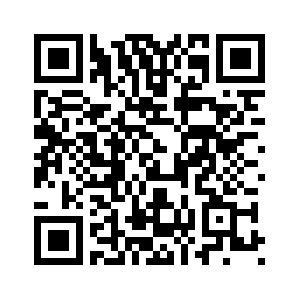Across China: Technology breathes new life into traditional Chinese medicine
Source: Xinhua
Editor: huaxia
2025-09-11 21:46:30
HEFEI, Sept. 11 (Xinhua) -- As night fell in Bozhou, east China's Anhui Province, many locals strolled through a night market that is both ancient and futuristic.
Here, people sip herbal teas, experience acupuncture and consult with traditional Chinese medicine (TCM) practitioners. But alongside these centuries-old practices, new technologies are also drawing big crowds.
At one stall, people were seen lining up to try a smart device, dubbed "smart TCM practitioner," to check their body condition. The machine mimics the pulse-taking method of TCM doctors by collecting data from acupuncture points on the wrists and ankles. It then generates a detailed health analysis within moments, according to Deng Junmei, a doctor at Bozhou Hospital of Traditional Chinese Medicine.
"The device uses smart software for TCM diagnosis. The health report can provide people with a scientific and practical reference for their physical condition," Deng said.
In a healthcare and wellness commercial complex in Bozhou, dubbed the capital of the Chinese medicinal herb industry and home to the country's largest medicinal herbs market and distribution center, a "TCM AI tongue diagnosis device" is also an attraction.
The device scans tongues and faces, collects certain body data and listens to customers before giving health advice, thus employing the four fundamental diagnostic methods of TCM -- inspection, auscultation and olfaction, inquiry and palpation.
"It is like having a consultation with a veteran TCM doctor -- as the device combines the clinical experience of nearly 100 TCM experts and is powered by an AI large language model," said Zhang Shuai, a staff member at the healthcare and wellness complex.
Notably, the device can assess more than 500 conditions and provide suggestions for maintaining health, while also helping doctors with their diagnosis.
Such smart tools epitomize how the TCM industry across the country is empowering ancient medical practices via the latest smart technologies.
Some TCM hospitals in Beijing and Wuxi, located in east China, have deployed applications and robots powered by AI large language models to help with diagnosis. In addition, many smart devices have entered China's health and wellness market.
Beyond hospitals and the wellness market, smart technologies are also transforming the production of herbal medicine and even the breeding of medicinal herb seedlings.
On the factory floor of Huatuo Traditional Chinese Medicine Co., Ltd. in Bozhou, few workers were in sight -- as its smart systems allow full autonomous production in almost all processes.
"Our core product, a heart rescue pill, still follows the ancient formula of Hua Tuo, one of the most renowned doctors in ancient China," said Guo Defeng, deputy general manager of Huatuo Traditional Chinese Medicine Co., Ltd. "Smart production means higher quality with precise temperature control in extracting active ingredients from medicinal herbs."
Bozhou has invested heavily in digitizing its TCM industry -- having launched four smart factories and 11 digital workshops, along with an industrial internet platform, to support local companies at a digital industrial park.
At a vertical seedling farm of Bozhou Xinghe Agricultural Development Co., Ltd., herbs grow on rotating sacks that resemble small Ferris wheels. Sensors track conditions in real time, while the smart system adjusts light and temperature to mimic seasonal changes and also provides the most suitable water and soil environment.
"AI has taken our seed breeding to a new level," said Zhou Xuejuan of Bozhou Xinghe Agricultural Development Co. ■



